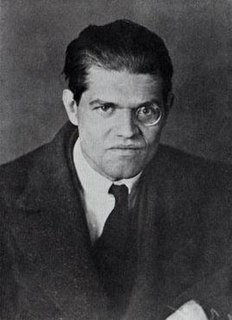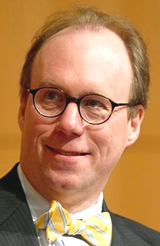A Quote by Raoul Hausmann
What is important is that our optical awareness rids itself of classical notions of beauty and opens itself more and more to the beauty of the instant and of these surprising points of view that appear for a brief moment and never return; those are what make photography an art.
Related Quotes
I believe that in a certain way this is proof of the truth of Christianity: Heart and reason encounter one another, beauty and truth converge, and the more that we ourselves succeed in living in the beauty of truth, the more that faith will be able to return to being creative in our time too, and to express itself in a convincing form of art.
The beauty of a finely worked object points to the beauty of the craftsmanship. The beauty of the craftsmanship points to the beauty of the name which was the source of the craftsmanship. The beauty of the name of the craftsman's art points to the beauty of the craftsman's attributes manifested in that art.
It was the upward-reaching and fathomlessly hungering, heart-breaking love for the beauty of the world at its most beautiful, and, beyond that, for that beauty east of the sun and west of the moon which is past the reach of all but our most desperate desiring and is finally the beauty of Beauty itself, of Being itself and what lies at the heart of Being.
...What is the use of beauty? i have lived my life surrounded by painters, and still I do not know the answer. But i suspect, some days, that beauty helps protect the spirit of mankind, swaddle it and succor it, so that we might survive. Beauty is no end in itself, but if it makes or lives less miserable so that we might be more kind-well, then, lets have beauty, painted on our porcelain, hanging on our walls, ringing through our stories.
Yet how strange a thing is the beauty of music! The brief beauty that the player brings into being transforms a given period of time into pure continuance; it is certain never to be repeated; like the existence of dayflies and other such short-lived creatures, beauty is a perfect abstraction and creation of life itself. Nothing is so similar to life as music.
Art itself is essentially ethical; because every true work of art must have a beauty or grandeur of some kind, and beauty and grandeur cannot be comprehended by the beholder except through the moral sentiment. The eye is only a witness; it is not a judge. The mind judges what the eye reports to it; therefore, whatever elevates the moral sentiment to the contemplation of beauty and grandeur is in itself ethical.
Fresh beauty opens one's eyes wherever it is really seen, but the very abundance and completeness of the common beauty that besets our steps prevents its being absorbed and appreciated. It is a good thing, therefore, to make short excursions now and then to the bottom of the sea among dulse and coral, or up among the clouds on mountain-tops, or in balloons, or even to creep like worms into dark holes and caverns underground, not only to learn something of what is going on in those out-of-the-way places, but to see better what the sun sees on our return to common every-day beauty.
Most craft give a nod, however brief and unfriendly, towards beauty. Vogon ships did not nod towards beauty. They pulled on ski masks and mugged beauty in a dark alley They spat in the eye of beauty and bludgeoned their wait through the notions of aesthetics and aerodynamics. Vogon cruisers did not so much travel through space as defile it and toss it aside.
Beauty—or the desire to be beautiful—is in itself a dangerous motivation. Someone (I forgot who) once said, ‘Does the person who loves someone for their beauty really love them?’ So don’t focus on beauty ... a respectable appearance is sufficient to make people more interested in your soul. It is the sum of our experiences that makes us interesting, and having been through a time in your life in which you were in a bad place (or what you perceived as a bad place) physically, can be useful. It can even be necessary.
Whoever accepts the higher mission of art and comes nearer and nearer to it through his creative activity, will then go on from art to the Spirit deep within his own self... The philosophic search for enlightenment and the artist's search for perfection of work can meet and unite. Art can be a path to spiritual enlightenment but not to complete and lasting enlightenment. It can be born out of, and can give birth itself to, only Glimpses. For art is a search for beauty, which by itself is not enough. Beauty must be supported by virtue and both require wisdom to guide them.








































